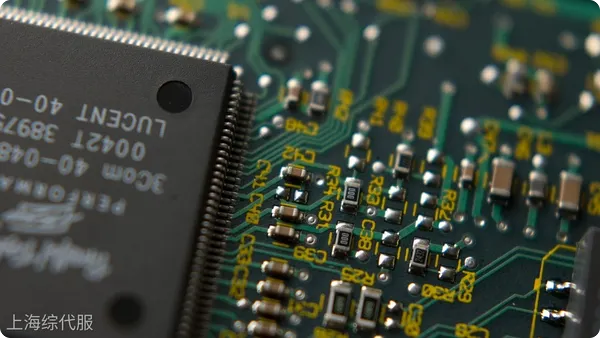On the morning of November 20, local time, during a meeting with Brazilian President Lula at the Presidential Palace in Brasilia, the two leaders jointly announced that they would upgrade bilateral relations from a "comprehensive strategic partnership" to a "China-Brazil community of shared future to jointly build a more just world and a more sustainable planet", and would connect the "Belt and Road" initiative with Brazil's development strategy.
The birth of the China-Pakistan community of shared future has great global, strategic and long-term significance. In the future, China and Pakistan will continue to deepen cooperation in science and technology, economy, trade, culture and other fields. For China's import and export trade, this means a more diversified trade pattern and broader development prospects.
I. Positive impact on China's import and export trade
1. Trade scale is expected to continue to expand
China and Pakistan have elevated their bilateral relations to a community of shared destiny. The enhancement of political mutual trust will further promote the willingness of both sides to cooperate in the economic field. With the continuous deepening of cooperation, trade barriers are expected to be further reduced, and various trade facilitation measures will be better implemented, thus promoting the continuous expansion of bilateral trade.
2. Continuous optimization and upgrading of trade structure
1. Brazil’s exports to China:Brazil has advantages in resource products such as agricultural products and mineral products. As the cooperation between the two sides deepens, while maintaining the export of traditional resource products, Brazil will have the opportunity to export more high value-added products to China, such as agricultural processed products and deep-processed mineral products, thereby increasing the added value of its export products.

2. China’s exports to Pakistan:China has strong competitiveness in manufacturing, high-tech industries, etc. With the help of the construction of the China-Brazil community of shared future, China can further expand its exports to Brazil in high-tech products and industrial products such as new energy vehicles, communication equipment, and smart home appliances, optimize China's export structure to Brazil, and improve the technological content and added value of export products.
(III) Expansion of cooperation areas brings new opportunities
1. Infrastructure:Brazil has a large demand for infrastructure construction, and China has rich experience and advanced technology in infrastructure construction. The cooperation between the two sides in the field of infrastructure will bring export opportunities for China's building materials, construction machinery and other related industries, and also provide a broad market space for Chinese companies to participate in Brazil's infrastructure construction projects.
2. Energy sector:The cooperation between the two countries in the fields of traditional energy and new energy will continue to upgrade. China can import more traditional energy such as crude oil and natural gas from Brazil to ensure a stable energy supply. At the same time, China's new energy companies can also expand their market in Brazil, promote Brazil's energy transformation, and create conditions for the export of China's new energy products and technologies.
3. Science and Technology:The China-Brazil scientific and technological cooperation has gradually formed a space cooperation as the core, radiating to a wide range of fields such as climate change, energy technology, agricultural science, nanotechnology, semiconductors, etc. This will promote the cooperation between Chinese science and technology enterprises and Brazilian scientific research institutions and enterprises, promote the transformation and application of Chinese scientific and technological achievements in Brazil, and drive the export of related technologies and products.

4. Enhance China’s position in the global trade landscape
As important representatives of the global South, China and Brazil can work together to build a community with a shared future, which can enhance the voice and influence of developing countries in global trade. Through close cooperation with Brazil, China can play a greater role in the formulation of global trade rules, promote the establishment of a more fair and reasonable international economic order, and create a more favorable external environment for China's import and export trade.
II. Challenges and Responses
1. Challenges
1. External competitive pressure:The deepening of China-Pakistan relations may attract the attention and competition of other countries. Some traditional major powers may take various measures to interfere with China-Pakistan cooperation, bringing certain external pressure to China's import and export trade.
2. Internal policy coordination:As the areas of cooperation continue to expand and deepen, the two sides need to conduct more in-depth coordination and docking in terms of trade policies, investment policies, industrial policies, etc. If the policies of the two sides are not coordinated smoothly, it may affect the efficiency and effect of cooperation and bring a certain degree of uncertainty to import and export trade.
3. Cultural differences:There are great cultural differences between China and Pakistan, and there are certain differences in business practices, laws and regulations, etc. These differences may bring obstacles to communication and understanding in the trade cooperation between the two sides, and increase trade costs and risks.

(II) Enterprise response measures
??? ??? ??? ???? ???? ?? ??? ?? ??? ???? ?? ?????. ????? ???? ???? ?? ??? ?? ??? ?? ? ??? ??? ? ????.Enterprises of the two countries should conduct more extensive cooperation and exchanges, and complement each other's strengths and jointly explore the market through establishing joint ventures, cooperative research and development, technology transfer, etc. At the same time, cultural exchanges and training between enterprises should be strengthened to enhance mutual understanding and trust and reduce the risks brought by cultural differences.
2. Strengthen risk prevention:Relevant foreign trade enterprises should strengthen the monitoring and analysis of the international market, pay attention to the global economic situation and changes in trade policies, and formulate corresponding risk prevention measures in a timely manner. At the same time, they should strengthen intellectual property protection, improve the independent innovation ability and core competitiveness of enterprises, and reduce trade risks.
Brazil has long been my country's largest trading partner in Latin America. The steady growth of China-Brazil trade not only reflects the complementarity of the two countries' economies, but also brings more development opportunities for both sides. Looking ahead, China-Brazil bilateral relations will continue to bring more business opportunities for import and export trade. The two sides will deepen cooperation in the fields of digital economy, new energy, agriculture, etc., and play a greater leading role in global economic development and cooperation among southern countries.


 Follow customer service WeChat
Follow customer service WeChat